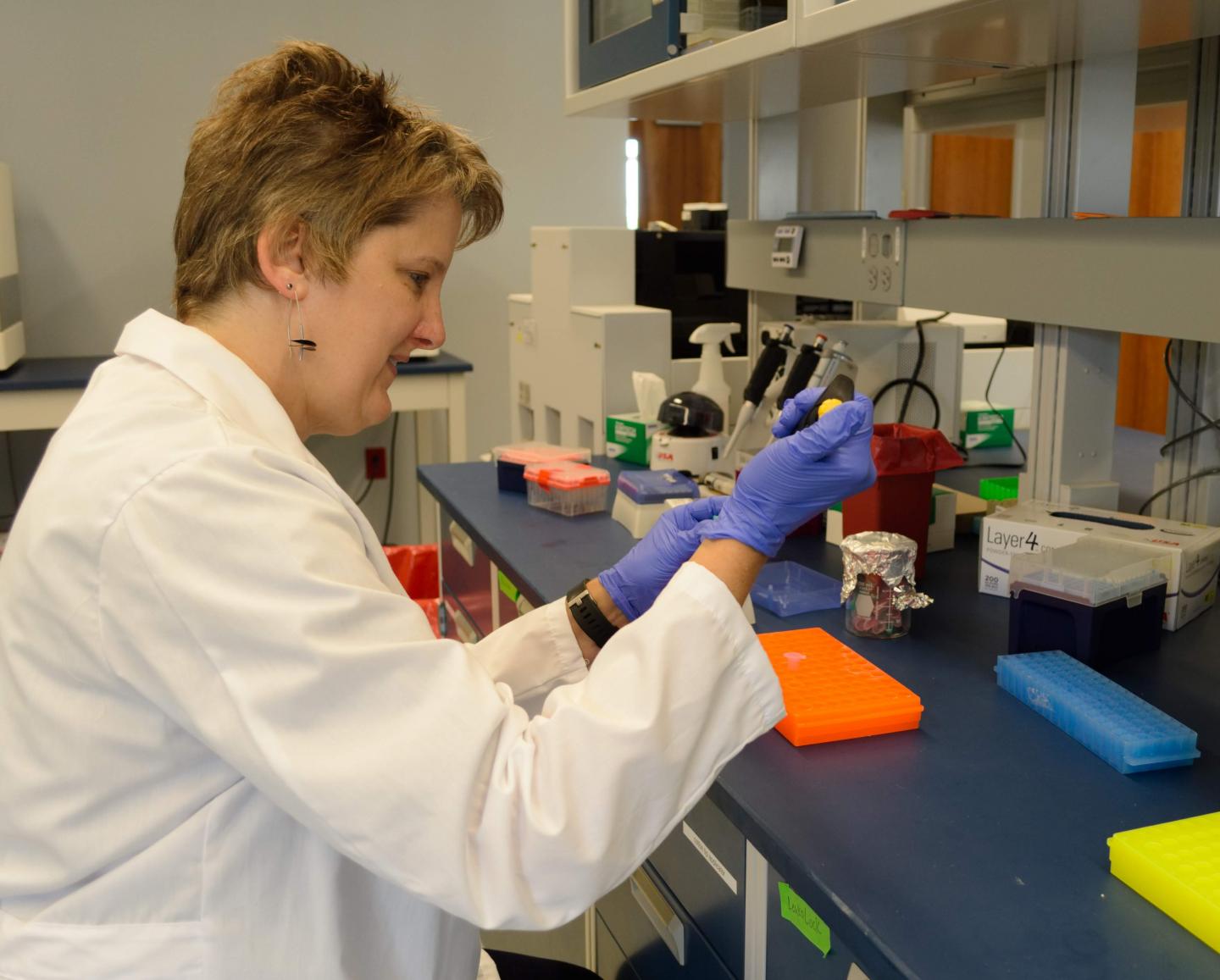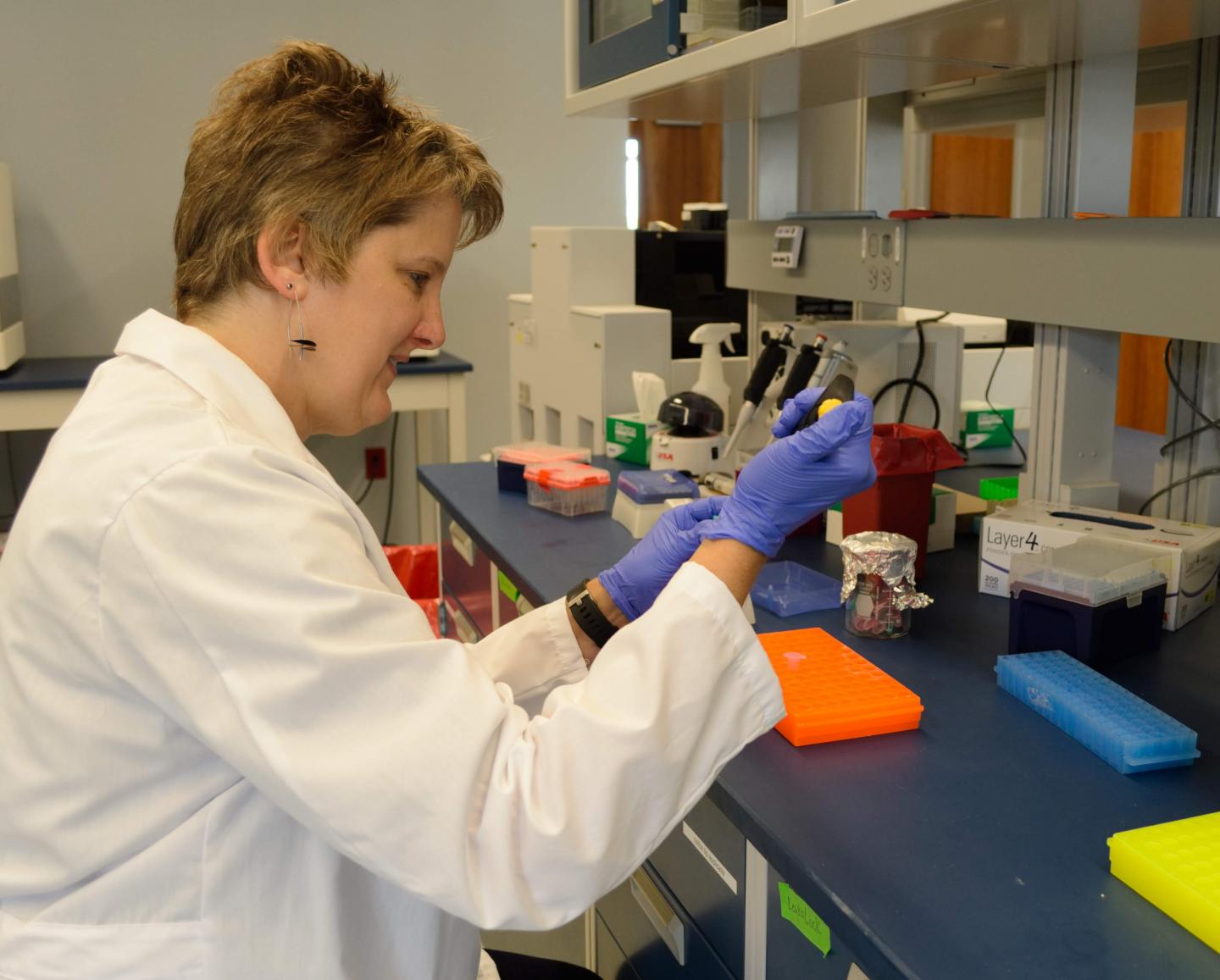
Credit: Leah Small, VCU Public Affairs
With the help of a $2.1 million grant, Virginia Commonwealth University School of Nursing researchers will study how a gene that regulates estrogen and neurotransmitter levels could be tied to cognitive decline in patients undergoing chemotherapy for breast and endometrial cancers.
Theresa Swift-Scanlan, Ph.D., the Ellen Fontaine Winston Distinguished Professor and director of Biobehavioral Laboratory Services in the VCU School of Nursing, is the primary investigator on the grant from the National Institute of Nursing Research of the National Institutes of Health to investigate the function of the COMT gene. Scanlan, a researcher in the VCU Massey Cancer Center Molecular Genetics program, and her team are also researching how COMT is expressed in the brain and peripheral tissues. Co-investigators include R.K. Elswick Jr., Ph.D., a professor of biostatistics in the VCU School of Nursing, and Charlotte Boettiger, Ph.D., an associate professor in the Department of Psychology and Neuroscience at the University of North Carolina at Chapel Hill.
Studies show that COMT has a role in Alzheimer's, cognitive decline and affective disorders such as depression due to its regulation of levels of the neurotransmitters dopamine and norepinephrine. The gene also affects how estrogen is produced in tissues. Dysregulation of COMT's hormone production functions can lead to hormone-related cancers such as breast and endometrial cancers.
COMT's influence on hormone-related cancer development and cognitive disorders makes the gene a possible avenue for pinpointing the causes of cognitive decline during chemotherapy for breast and endometrial cancer cancers. The cognitive decline results in a confused state commonly referred to as chemo brain.
"On average, cancer-treatment-related cognitive dysfunction impacts 20 to 40 percent of those suffering from non-nervous tumors such as breast, colorectal, uterine, cervical and prostate cancers. Therefore, studies which seek to understand the underlying factors of such treatment-related symptoms are needed to inform future interventions," Swift-Scanlan said.
Additionally, studying COMT could lead to a greater understanding of molecular changes that cause a number of diseases. COMT's far-reaching impact on neurotransmitter regulation and estrogen production means that studying the gene could lead to biomarker discoveries for a wide range of cognitive disorders – from addiction to schizophrenia – and hormone-related cancers. The gene also could serve as a target for therapeutics and interventions that might correct dysregulation of the gene.
"From a nursing perspective, learning more about how this gene is expressed at the molecular level could be transformative, not just for the conditions we are interested in, such as hormonally related cancers, but also distantly related neurodegenerative disorders," Swift-Scanlan said.
The researchers are specifically investigating the differences between two RNA and protein forms, or changes, of COMT as seen within various cancer and neuronal cells.
"There hasn't been an efficient way until recently to measure these RNA and protein changes to better understand how COMT can be involved in all these vastly different neurodegenerative and behavior disorders, while also involved in cancer," she said. "We hope this work can lead to interventions that reverse disruptions in healthy gene expression."
###
About VCU and VCU Health
Virginia Commonwealth University is a major, urban public research university with national and international rankings in sponsored research. Located in downtown Richmond, VCU enrolls more than 31,000 students in 217 degree and certificate programs in the arts, sciences and humanities. Thirty-eight of the programs are unique in Virginia, many of them crossing the disciplines of VCU's 11 schools and three colleges. The VCU Health brand represents the VCU health sciences academic programs, the VCU Massey Cancer Center and the VCU Health System, which comprises VCU Medical Center (the only academic medical center and Level I trauma center in the region), Community Memorial Hospital, Children's Hospital of Richmond at VCU, MCV Physicians and Virginia Premier Health Plan. For more, please visit http://www.vcu.edu and vcuhealth.org.
Media Contact
Leah Small
[email protected]
804-828-8355
@vcunews
http://www.vcu.edu





